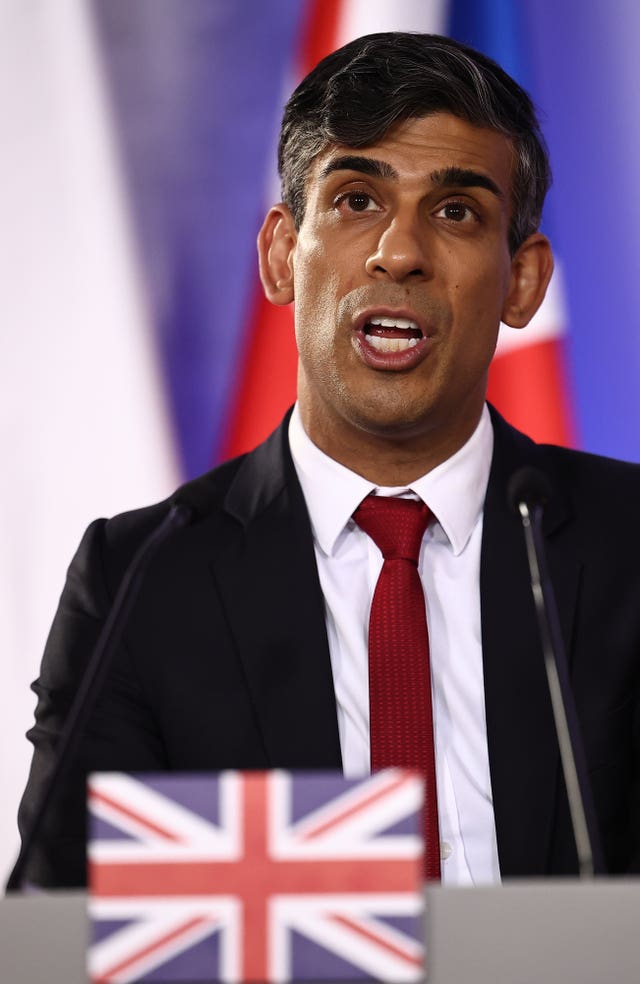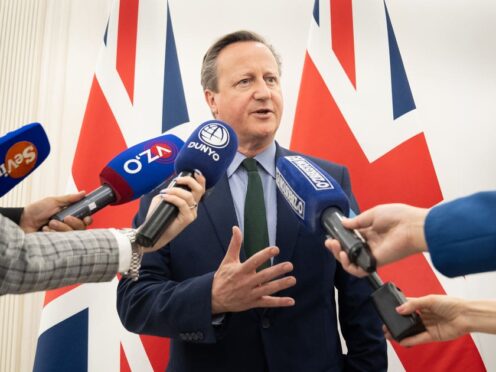Leaving the European Convention on Human Rights (ECHR) is not “necessary” to prevent small boat crossings, Lord David Cameron has said amid Tory divisions over the UK’s membership of the treaty.
But the Foreign Secretary appeared to concede that a returns agreement with France to break up people-smuggling gangs is “simply not possible” because of “the situation we’re in”.
Downing Street said a deal with a European Union country is not possible because the bloc would insist on the UK taking a quota of migrants as part of the agreement.
It comes as Rishi Sunak’s Bill aimed at blocking further setbacks to the Government’s controversial Rwanda deportation scheme passed through Parliament following months of wrangling between MPs and peers.

While the legislation is now poised to become law, ministers are braced for legal challenges to the plan and the judiciary has made 25 courtrooms available to deal with cases.
The Prime Minister previously hinted he would be willing to leave the ECHR if it prevented him from implementing his policy of deporting asylum seekers to Rwanda.
But speaking to ITV’s Peston show, Lord Cameron said: “I don’t think it’s necessary to leave the ECHR, I don’t think that needs to happen to make this policy work.”
The Supreme Court ruled last year that the scheme was unlawful, finding grounds for believing that migrants sent to Kigali would face a risk of ill-treatment as a result of being returned to their country of origin.
Refoulement – forcing an asylum seeker to return to a nation where they are likely to face persecution – is prohibited by a number of international treaties, including not just the ECHR but the UN Refugee Convention, the UN Convention Against Torture and the UN International Covenant on Civil and Political Rights.
These treaties have been given effect in UK domestic law by the Human Rights Act 1998, the Asylum and Immigration Appeals Act 1993, the Nationality, Immigration and Asylum Act 2002, and the Asylum and Immigration (Treatment of Claimants etc) Act 2004.
On whether he would have pursued the policy while he was prime minister, Lord Cameron said: “We had a totally different situation because (we) could return people directly to France.
“Now, I’d love that situation to be the case again, that’s the most sensible thing. People land on a beach in Kent, you take them straight back to France, you therefore break the model of the people smugglers. That’s not available at the moment. It’s simply not possible.”
Asked whether this is because of Brexit, he said: “Because of the situation we’re in, because of the attitude of others and all the rest of it.”
A No 10 spokeswoman said: “It is the case that such a returns agreement with the French is not possible, it’s not on the table.
“We would not agree to any kind of deal that required quotas in return.”
Meanwhile, Home Secretary James Cleverly said the criticism of the Rwanda Bill from the ECHR, which he “values enormously”, is “out of step”.
“There is a real moral hazard in saying to a nation state government that it cannot manage its own borders, it cannot make decisions about who does or does not live in its own country,” he said while speaking at a think-tank in Rome.
“Because that undermines the integrity of the democratic process in which we live.”
